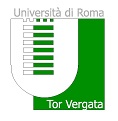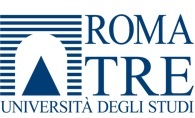Enti organizzatori:
Con il patrocinio di:




NILDE (Network for Interlibrary Document Exchange) celebra quest'anno 15 anni di attività, fondati sulla continua evoluzione e miglioramento del software e sulla espansione del servizio a livello nazionale e internazionale. Grazie alla sua usabilità NILDE è ormai uno strumento essenziale per il reperimento di documenti nel mondo delle biblioteche.
Lo sviluppo massiccio delle risorse digitali, dei social network per la ricerca (ResearchGate, Academia.edu, Mendeley ecc.), dell'Open Access, Google Scholar, dei siti pirata (ad esempio booksc e bookzz), impone tuttavia una riflessione sui servizi bibliotecari.
La fornitura di articoli perderà importanza? Come evolverà il mestiere del bibliotecario nel prossimo futuro? Gli scambi di articoli tra biblioteche, nazionali e internazionali, subiscono una generale contrazione anche a causa delle limitanti condizioni poste in essere dai maggiori editori?
Dal canto loro i bibliotecari faticano a spiegare queste imposizioni contrattuali ai loro utenti, i quali si procurano gli articoli per altre vie, per lo più ignari se queste siano legali o meno. L'evoluzione normativa sul copyright procede a ritmi esasperatamente lenti, generando inevitabilmente incertezza e ambiguità sull'utilizzo e accesso alle risorse digitali.
Da spettatori passivi dei cambiamenti epocali in corso, i bibliotecari dovranno sforzarsi di condurre queste mutazioni. Come? Informandosi, formandosi, comunicando e promuovendo le novità di questa nuova era della condivisione, agendo come gruppo di pressione verso i decisori politici, divenendo guide del mutamento.
****
The NILDE (Network for Interlibrary Document Exchange) celebrates 15 years of operation, due to its continuous software improvement, evolution and national as well as international expansion. Thanks to its usability, NILDE has become an essential tool to retrieve documents in library environment.
The massive development of digital resources, social networks for research (Mendeley, ResearchGate, Academia.edu), Open Access, Google Scholar, and pirate sites such as Bookzz, however, demands us a profound reflection on the library services.
Will document delivery service survive? How will librarianship evolve/change in the future? Exchange of materials between libraries, at national and international level is decreasing also because of the limitations imposed by the major publishers?
On their behalf, librarians feel uneasy of explaining these restrictions to their users, who would eventually find other ways of getting the papers without considering whether their methods are legal or not. On the other hand, necessary changes to copyright laws proceed very slowly, causing uncertainty on the use of digital resources.
From passive audience of current epochal changes, librarians should be leading actors of these mutations. How? Learning, communicating and promoting all news of the resource sharing era, and lobbying towards decision makers, becoming guides of this inexorable process.
Main sponsor
Sponsor premium
Other sponsors
















